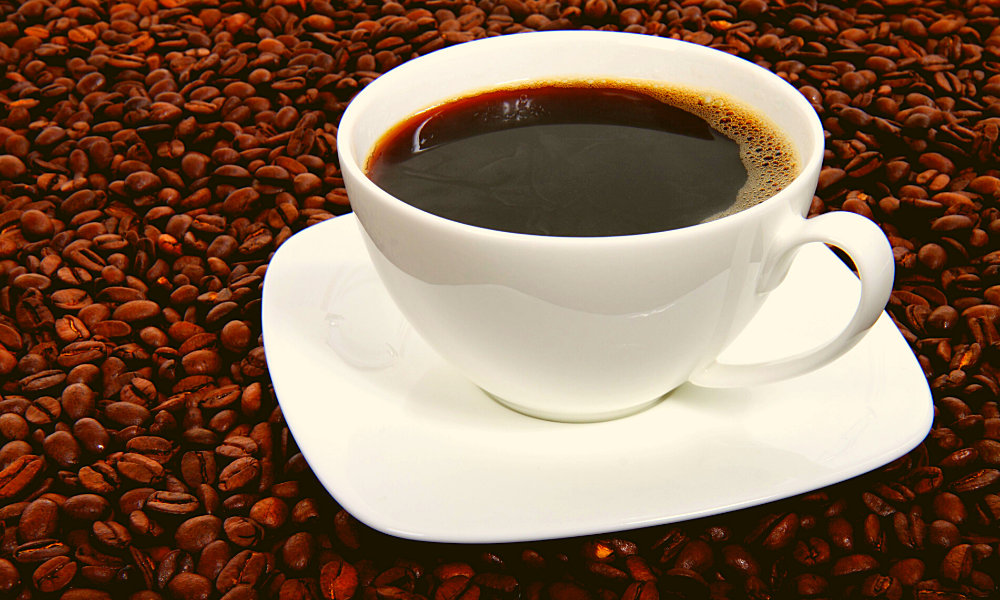Best Black Coffee For Weight Loss

The aroma of freshly brewed coffee fills the air, a comforting ritual that marks the start of countless mornings. Imagine the rich, dark liquid swirling in your mug, the steam gently warming your face. But what if this simple pleasure could also be a secret weapon in your weight loss journey?
While no single food or beverage is a magic bullet for weight loss, black coffee, consumed strategically, can be a valuable tool. This article delves into the world of black coffee, exploring its potential benefits and guiding you toward making informed choices to support your health and wellness goals. We'll explore what makes black coffee a potential aid, examine scientific perspectives, and offer some practical tips.
The Buzz About Black Coffee and Weight Loss
Black coffee, in its purest form, is essentially brewed coffee without any added milk, cream, sugar, or sweeteners. This minimalist approach is what distinguishes it and contributes to its potential weight management benefits. It is important to understand the components responsible for this effect.
Caffeine, the star component, is a natural stimulant found in coffee beans. It's known to increase alertness and reduce fatigue. More importantly, caffeine can boost metabolism and promote thermogenesis, the process of heat production in the body, which can lead to increased calorie burning.
Furthermore, studies suggest that caffeine can enhance exercise performance. By increasing energy levels and reducing perceived exertion, it allows individuals to work out harder and longer. This translates to more calories burned and improved fitness outcomes.
Beyond caffeine, black coffee contains chlorogenic acid, an antioxidant. Chlorogenic acid may impact glucose metabolism and insulin sensitivity. Some studies indicate that it can help regulate blood sugar levels, potentially reducing the risk of insulin resistance, a condition linked to weight gain and type 2 diabetes.
Choosing the Right Beans and Brew
Not all black coffee is created equal. The type of bean, the roasting process, and the brewing method can significantly influence the taste, caffeine content, and antioxidant levels of your cup.
Arabica beans, known for their smoother, sweeter flavor profile, are a popular choice. Robusta beans, on the other hand, are more robust and bitter and generally contain more caffeine. Experimenting with different origins and roasts is key to finding a blend that you enjoy and that aligns with your preferences.
Lightly roasted beans tend to retain more of their natural antioxidants. Darker roasts may have a bolder flavor but can lose some of these beneficial compounds during the roasting process. Consider a medium roast for a balance of flavor and potential health benefits.
The brewing method can also affect the final product. Pour-over, French press, and espresso are popular options. Each method extracts different compounds from the beans, resulting in unique flavor profiles and caffeine concentrations.
Mindful Consumption: A Key to Success
While black coffee can offer some advantages, it's crucial to consume it mindfully as part of a balanced lifestyle. Too much caffeine can lead to side effects like anxiety, insomnia, and digestive issues.
The Food and Drug Administration (FDA) suggests that for healthy adults, consuming up to 400 milligrams of caffeine per day—that's roughly four or five cups of brewed coffee—is not generally associated with negative effects. But individual tolerance varies, so it's important to pay attention to your body's signals.
Moreover, remember that black coffee's potential benefits are most pronounced when it replaces calorie-laden beverages. Swapping sugary sodas or creamy lattes with black coffee can significantly reduce your overall calorie intake. However, adding sugar, cream, or artificial sweeteners defeats the purpose and negates many of its advantages.
Scientific Perspectives and Research
Numerous studies have explored the relationship between caffeine and weight loss. A meta-analysis published in the International Journal of Obesity found that caffeine intake was associated with increased energy expenditure and fat oxidation.
Research published in the American Journal of Clinical Nutrition indicated that caffeine can stimulate the nervous system, signaling the body to break down fat cells. While these findings are promising, it is crucial to acknowledge that coffee is not a magic solution.
It works best when combined with a healthy diet and regular exercise. It is always advisable to consult a healthcare professional or registered dietitian for personalized guidance.
"Black coffee can be a helpful tool for some individuals looking to manage their weight," says Dr. Emily Carter, a registered dietitian specializing in weight management. "However, it's essential to consider individual health conditions and caffeine sensitivity. It shouldn't be considered a substitute for a balanced diet and regular physical activity."
Beyond Weight Loss: Additional Benefits
Beyond its potential weight management benefits, black coffee offers a range of other advantages. Studies have shown that coffee consumption may be linked to a reduced risk of several chronic diseases.
These include type 2 diabetes, Parkinson's disease, and Alzheimer's disease. The antioxidants present in coffee, such as chlorogenic acid, may play a role in protecting against cellular damage and inflammation.
Additionally, coffee can improve mood and cognitive function. Caffeine stimulates the release of dopamine, a neurotransmitter associated with pleasure and motivation. This can lead to increased focus, concentration, and overall well-being.
Making Black Coffee a Sustainable Habit
To make black coffee a sustainable part of your lifestyle, start by finding a coffee you genuinely enjoy. Experiment with different beans, roasts, and brewing methods until you discover your perfect cup.
Begin gradually, replacing one sugary beverage with black coffee each day. Pay attention to how your body responds and adjust your intake accordingly.
Consider making your coffee at home to control the ingredients and avoid added sugars and unhealthy fats. Invest in a good quality coffee maker or brewing device to elevate your coffee experience.
Remember that consistency is key. Incorporating black coffee into your daily routine, alongside a healthy diet and regular exercise, can contribute to long-term weight management and overall well-being.
Final Thoughts
The journey toward a healthier lifestyle is a personal one, and black coffee can be a supportive companion along the way. Embrace it not as a quick fix, but as a flavorful addition to a balanced approach.
By understanding its potential benefits, choosing the right beans, and consuming it mindfully, you can unlock its potential to support your weight loss goals and enhance your overall health. So, savor each sip, and enjoy the journey to a healthier, more vibrant you.
Ultimately, the best black coffee for weight loss is the one you enjoy most, brewed with intention and consumed as part of a holistic approach to health and well-being. Cheers to your health!


















